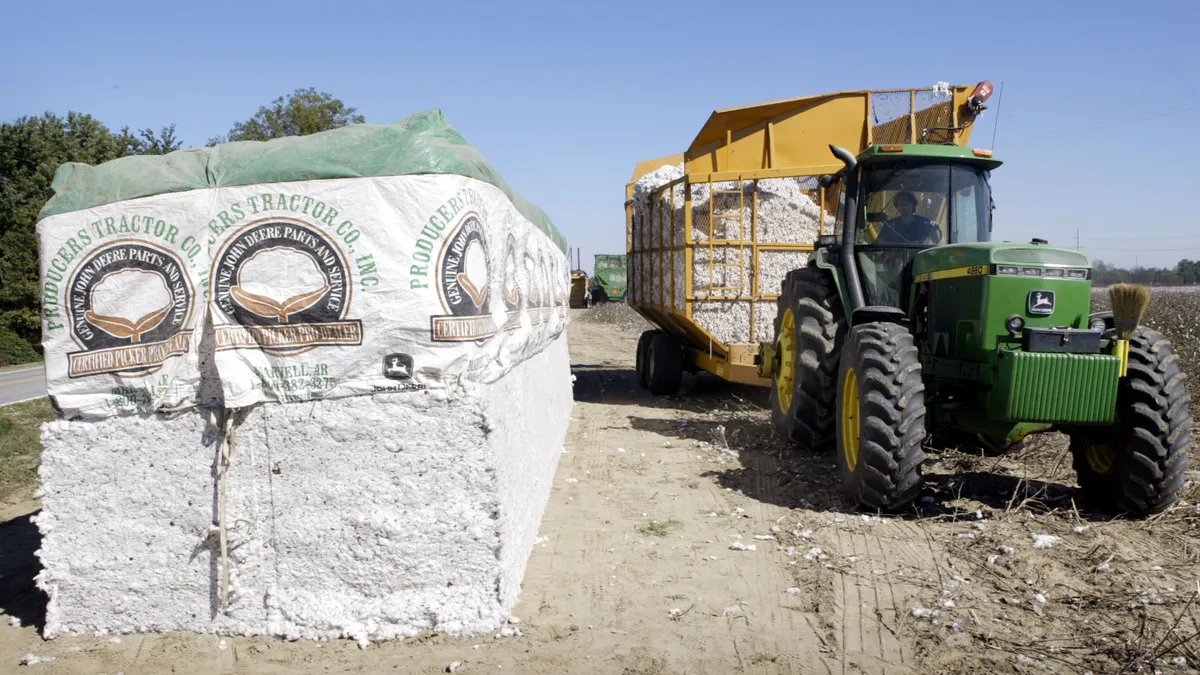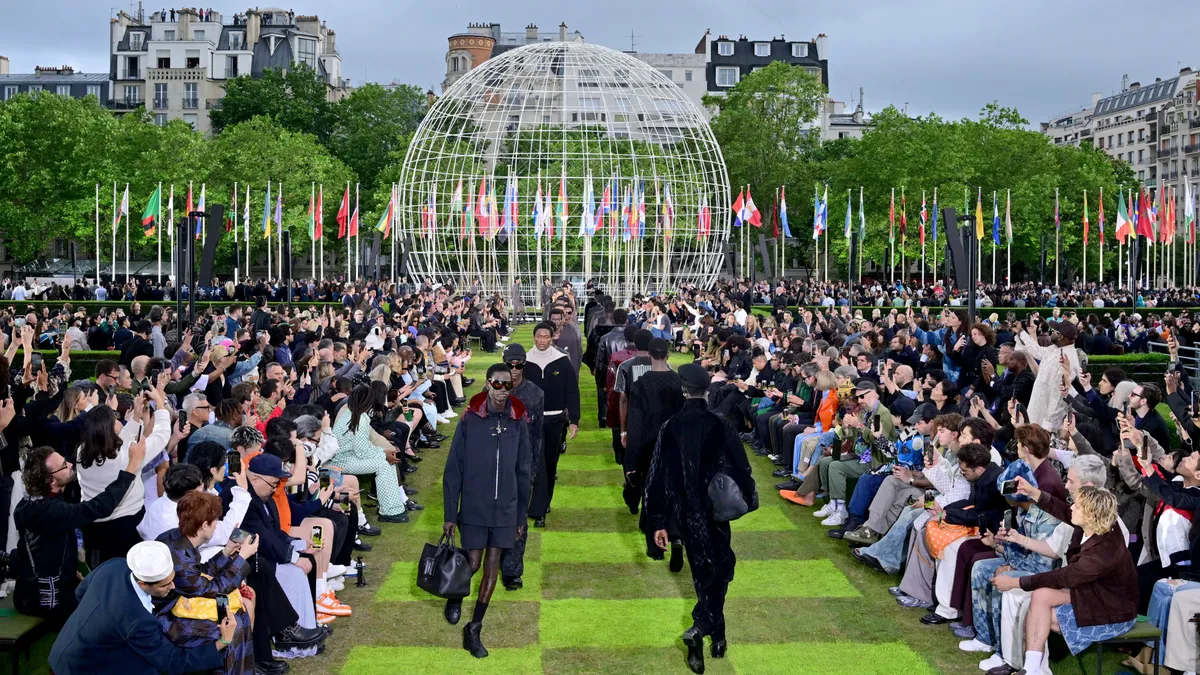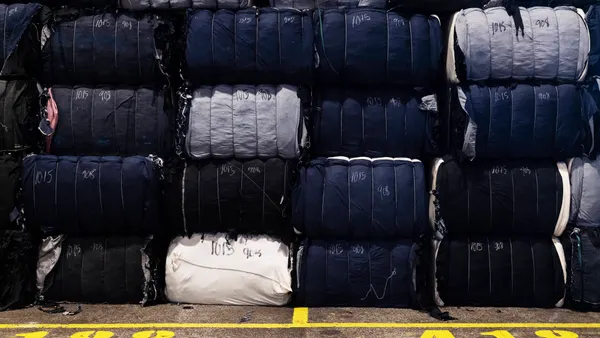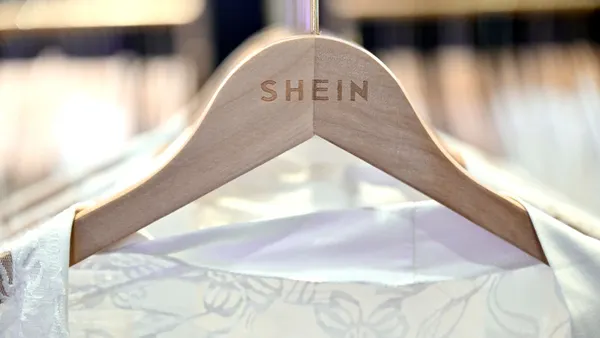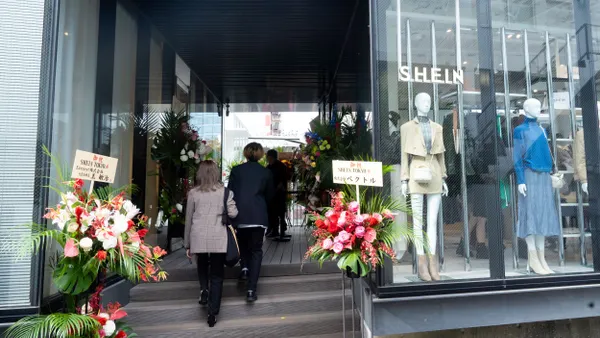Dive Brief:
- Nonprofit supply chain certifier Better Cotton released details from an independent audit of cotton farms it had previously certified, following a report earlier this month from nonprofit group Earthsight alleging that some of those farms grow cotton on “stolen” and “deforested” land in Brazil.
- The audit, conducted by agriculture inspection firm Peterson in September 2023, “found no relation” between nonprofit Earthsight’s accusations related to community impact and the farms that produce the certified cotton, “and therefore no breach of standards,” Better Cotton wrote in a statement sent to Fashion Dive.
- Earthsight, however, said in a statement sent to Fashion Dive that Better Cotton’s audit was “so flawed as to be almost worthless,” adding that it was conducted “in a narrow manner which ignored the complexities of the issues we uncovered.”
Dive Insight:
In April, Earthsight released results from a year-long investigation, which traced cotton from Brazil’s Cerrado region — and approved by Better Cotton — to products sold by H&M and Zara parent Inditex. Earthsight’s report claimed the cotton was made from producers SLC Agrícola and Grupo Horita, and said both companies were fined repeatedly for environmental violations. The report further stated that the Hortatia Group grew cotton on a plantation that was “one of the largest areas of land grabbed in Brazilian history.”
“This blinkered effort at greenwash won’t cut it with the public, and it shouldn’t with H&M and Zara,” Rubens Carvalho, head of deforestation and research for Earthsight, said in an email to Fashion Dive following Better Cotton’s investigation.
Spokespeople for Zara parent company Inditex didn’t immediately respond to Fashion Dive’s requests for comment on the audit, but previously said they take such claims seriously after the initial Earthsight report.
“We are in close dialogue with Better Cotton to follow the result of their investigation and gain more understanding of their action plan and timeline,” an H&M spokesperson said in an email to Fashion Dive. “Together with other brand members and stakeholders, we are engaging with Better Cotton in conversations to further improve their standard. We kindly refer to Better Cotton for more information on their investigation.”
Better Cotton said Earthsight’s claims around deforestation relate to fines issued years before it started working with the farms involved. The cotton certifier also said it couldn't comment on pending litigation cited in the Earthsight report.
“Better Cotton has been actively working with stakeholders across the cotton value chain over the last three years to create an inclusive and scalable approach to traceability,” the nonprofit wrote in its statement. “This effort has enabled the tracking of cotton through various stages, providing more granular visibility into where cotton is grown.”
The group also said that by 2025 it will trace cotton to gins rather than country of origin to offer increased traceability. Earthsight said while this approach is better, it remains inadequate.
“Cotton must be traced back to farms of origin, which is the level where land grabbing, illegal deforestation and human rights violations take place,” Earthsight said in an email.
The Better Cotton investigation focused on three farms, while Earthsight’s report focused on multiple farms. A spokesperson for Better Cotton said only those three had been certified by Better Cotton at the time in question.
The spokesperson said Better Cotton “recognises that wider scrutiny of producers and context is required over and above the Better Cotton Standard which is based at the farm-level.”
“Better Cotton acknowledges the assessment only looked at these individual farms’ operations, ignoring broader issues related to the agribusinesses that own them,” Earthsight said. “It’s not surprising then that Better Cotton could not find any links to corruption.”
Meanwhile, Better Cotton announced Tuesday that it will conduct sustainability mapping and assessments in West and Central Africa “to enhance its understanding of the needs of smallholder farmers in the region and identify context-specific interventions.”
The project is funded by the African Export-Import Bank, or Afreximbank, and is meant to show how Better Cotton can support sustainable and regenerative cotton in Mali and Côte d’Ivoire, per a news release.



